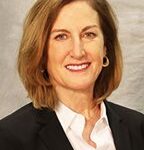
by Steve Haner
The (Very) Honorable Judith Jagdmann has resigned from Virginia’s State Corporation Commission, effective at the end of the year. The 2023 General Assembly now has two seats to fill on that crucial body, having failed through all of 2022 to fill an existing vacancy on the three-judge panel.
Jagdmann, who joined the court in 2006, announced her decision in a letter to the General Assembly leadership. Her current term is not over, and she is years away from any mandatory retirement based on age.
Before joining the court, she served as Attorney General of Virginia for one year after Jerry Kilgore stepped aside to run for governor in 2005. She joined the Office of Attorney General as the Deputy Attorney General for the Civil Division in January of 1998 (the same time this author was also appointed to a post there by former Attorney General Mark Earley).
The SCC is an often under-appreciated regulatory body that is both an administrative agency and a court of record. It usually gets attention for decisions dealing with utility regulation and infrastructure location, but its oversight reaches from corporate registrations and governance to the investment and insurance and telecommunications industries.
Its separation from the Governor’s Office and the hurly-burly of elective politics is intentional. The commissioners are bound by judicial ethics rules.
Jagdmann has risen to national prominence as president of National Association of Regulatory Utility Commissioners (NARUC). And from time to time she has added her own commentary on major Virginia cases with signed dissents or pointed concurrences, betraying sympathy for consumers.
In September 2021, for example, while approving the addition of a charge to Dominion Energy Virginia bills to pay for the Regional Greenhouse Gas Initiative (RGGI), she pointed to its redundancy, given other and stronger green energy mandates in state law.
She is still likely to have a vote in the major decision facing the SCC over the pending Coastal Virginia Offshore Wind project. It was initially approved with a condition Dominion opposed, requiring the utility to take the financial hit if the project fell below promised output and power needed to be purchased outside Dominion to backfill.
Dominion asked for reconsideration and now another approach to consumer protection on the project has been proposed by the utility, Attorney General Jason Miyares, and some environmental advocates. A hearing is set for Monday on whether to retreat from the performance requirement on power output. SCC decisions can be appealed to the Supreme Court of Virginia.
Dozens of other cases are grinding on and will be active in January while the court lacks two judges. Jagdmann has agreed to sit in for a few weeks if needed. If the divided General Assembly, the Republican House and Democratic Senate, can now split their differences and find two consensus candidates, it could act quickly.
A native of Southwest Virginia and daughter of a federal district judge, Jagdmann was on staff at the SCC when Earley invited her onto his leadership team. A few more details are on her SCC biographical page.

Leave a Reply
You must be logged in to post a comment.